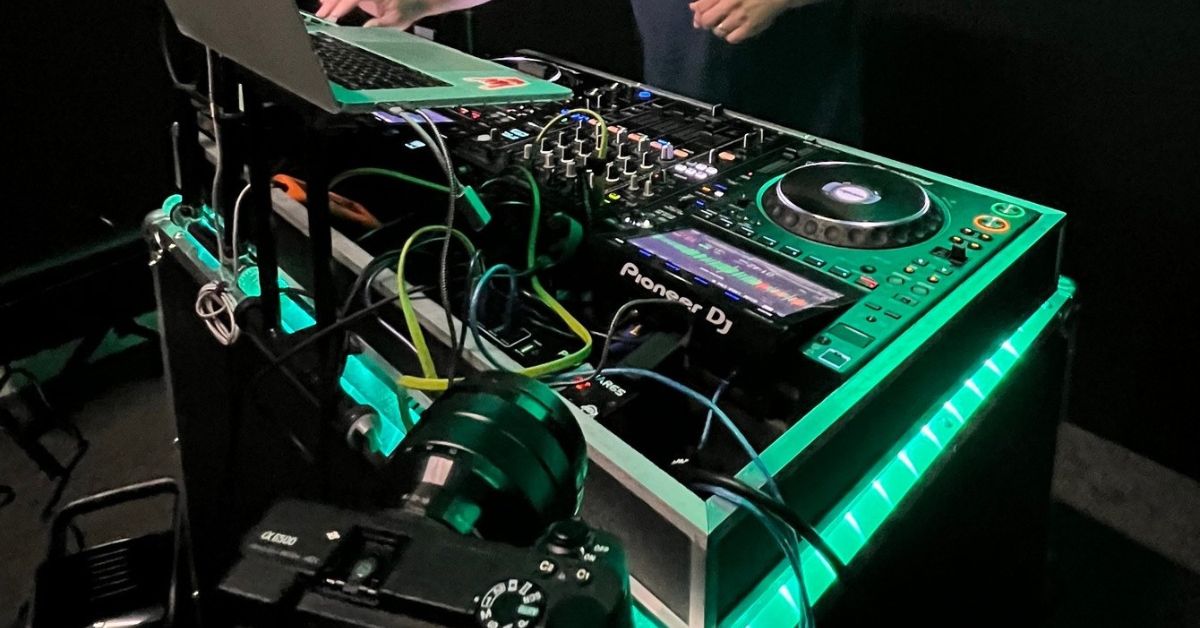The studio is your creative sanctuary, whether you’re an aspiring DJ, a seasoned musician, or a recording artist refining your sound. It’s where ideas come to life, and your artistic vision unfolds. However, even the most talented DJs can face challenges trying to capture a unique rhythm. If you’re ready to get into the flow, we’ve compiled five essential studio tips for every DJ recording session to help you make the most of your time.
1. Prepare Your Audio Files
Depending on your style, you may need to prepare your audio files for the session beforehand. Start by making sure you balance your levels and keep them consistent. This step is crucial to avoid clipping and distortion, which can significantly affect the final recording. Use high-quality audio files, preferably in lossless formats, such as WAV or FLAC, to preserve the integrity of your sound. Additionally, organize your track segments and label them clearly, making it easier to navigate through them quickly and efficiently during the session.
2. Choose a Cloud-Based Recording Software
Cloud-based recording software offers many advantages that can significantly enhance productivity and collaboration. However, the software must integrate smoothly with your current setup to avoid technical issues. Storage capacity, user-friendliness, and pricing are all key factors to consider. Many cloud-based recording tools offer advanced editing features and integration with other software, streamlining your workflow and saving valuable time.
3. Don’t Forget Your CDJ
CDJs have become immensely popular among modern DJs due to their versatility and advanced features. Unlike traditional turntables, CDJs offer all sorts of digital capabilities, such as precise cue points, looping, and pitch control, which enable DJs to manipulate tracks with incredible precision. Their compatibility with digital music formats allows easy integration with DJ software and music libraries, providing a seamless recording experience.
4. Use Mastering
Mastering is essential to nailing down your desired sound. It enhances the overall quality, ensuring consistency across all tracks, and making the audio compatible with various playback systems. Techniques such as equalization, compression, limiting, stereo enhancement, and dithering can help you achieve that next-level beat you’ve been looking for. Mastering engineers ensure that the final product is sonically cohesive by following these stages, so it’s good to know how it works.
5. Review Your Mixes
Reviewing your mixes is essential to producing audio that truly moves a crowd. By reviewing the final product, you may find a key element that can significantly improve the quality of your final track. You may want to apply effects such as reverb and delay to add depth and ambiance to the recording. Revisiting and analyzing your mixes will allow you to identify and rectify any imbalances in levels, frequencies, and effects that you may have overlooked, providing a consistent and enjoyable experience for your audience.
Make the Most of Your Time
Studio time is the beating heart of the creative process for DJs. Make the most of your booking by following these five studio tips for every DJ recording session. Remember, the journey to musical mastery is continuous, and each creative endeavor is an opportunity to refine your craft.
Are you ready to lay down your polished tracks? A professional DJ rehearsal studio will ensure your set is top-notch so you can find your crowd.

